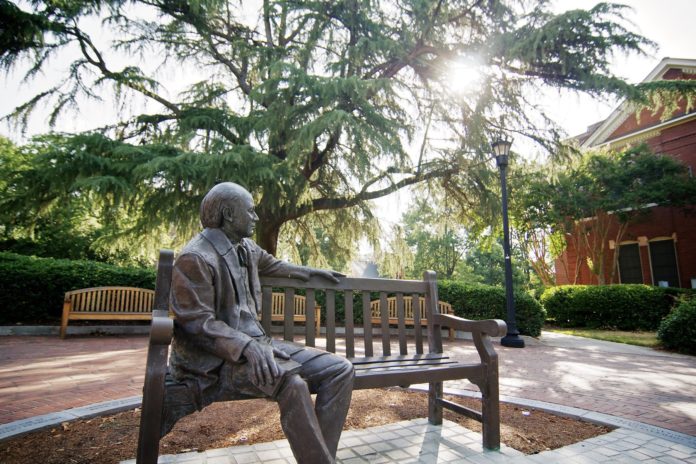MACON – Dr. Paul Seale, a professor in the Department of Family Medicine at Mercer University School of Medicine and a physician at the Medical Center of Central Georgia, has been awarded a grant from the National Institutes of Health to train primary care faculty and medical residents in alcohol screening and intervention. The project, which will train 430 physicians in Georgia and Texas over the next two years, will build on the successful pilot program conducted at the Family Health Center, a Medical Center of Central Georgia facility that serves as the primary training site for Mercer’s family medicine residency program.
“Research shows that if physicians can identify people with risky or dangerous levels of alcohol consumption, they can significantly impact their drinking behavior,” said Seale, who is also a family physician at Macon’s Family Health Center. “If this project is successful, it has the opportunity to have a multiplier effect as physicians take what they have learned into their practices and communities.”
Seale’s research is important since alcohol abuse is the third leading cause of preventable death in the United States. The $596,267 grant will allow Seale and his team of investigators to use a combination of clinician training and systems intervention to train faculty and residents to perform screening and brief intervention (SBI) techniques at eight primary care residency programs. The project will also test the ability of team-based learning activities to reinforce continued use of SBI behaviors.
The performance sites include: Morehouse Family Practice Clinic (Atlanta, Ga.), Emory University Family Practice Clinic (Atlanta, Ga.), Rome Family Practice Center (Rome, Ga.), Columbus Family Practice Center (Columbus, Ga.), University of Texas Medical School at Houston Family Practice Residency (Houston, Tex.), Baylor College of Medicine Family Practice Residency (Houston, Tex.), Christus St. Joseph’s Family Practice Program (Houston, Tex.), and Memorial Family Practice Residency (Houston, Tex.). In addition to the principal investigator, Seale, co-investigators include John Boltri, M.D. (Medical Center of Central Georgia), Sylvia Shellenberger, Ph.D. (Medical Center of Central Georgia), John Higgins-Biddle, Ph.D. (University of Connecticut), J. Aaron Johnson, Ph.D. (University of Georgia), and Mary Velasquez, Ph.D. (University of Texas Medical School at Houston).
About Mercer University and the School of Medicine:
Mercer University’s School of Medicine was established in 1982 to educate physicians and health professionals to meet the primary care and health care needs of rural and medically underserved areas of Georgia. Students entering Mercer University School of Medicine will be graduated from a school that utilizes a problem-based medical education program that provides early patient care experiences. Such an academic environment fosters the early development of clinical problem-solving and instills in each student an awareness of the place of the basic medical sciences in medical practice.
Founded in 1833, Mercer University has campuses in Macon and Atlanta as well as three regional academic centers. With 10 schools and colleges, the University offers programs in liberal arts, business, engineering, education, medicine, nursing, pharmacy, law and theology. For 15 consecutive years, U.S. News & World Report has named Mercer University as one of the leading universities in the South.










